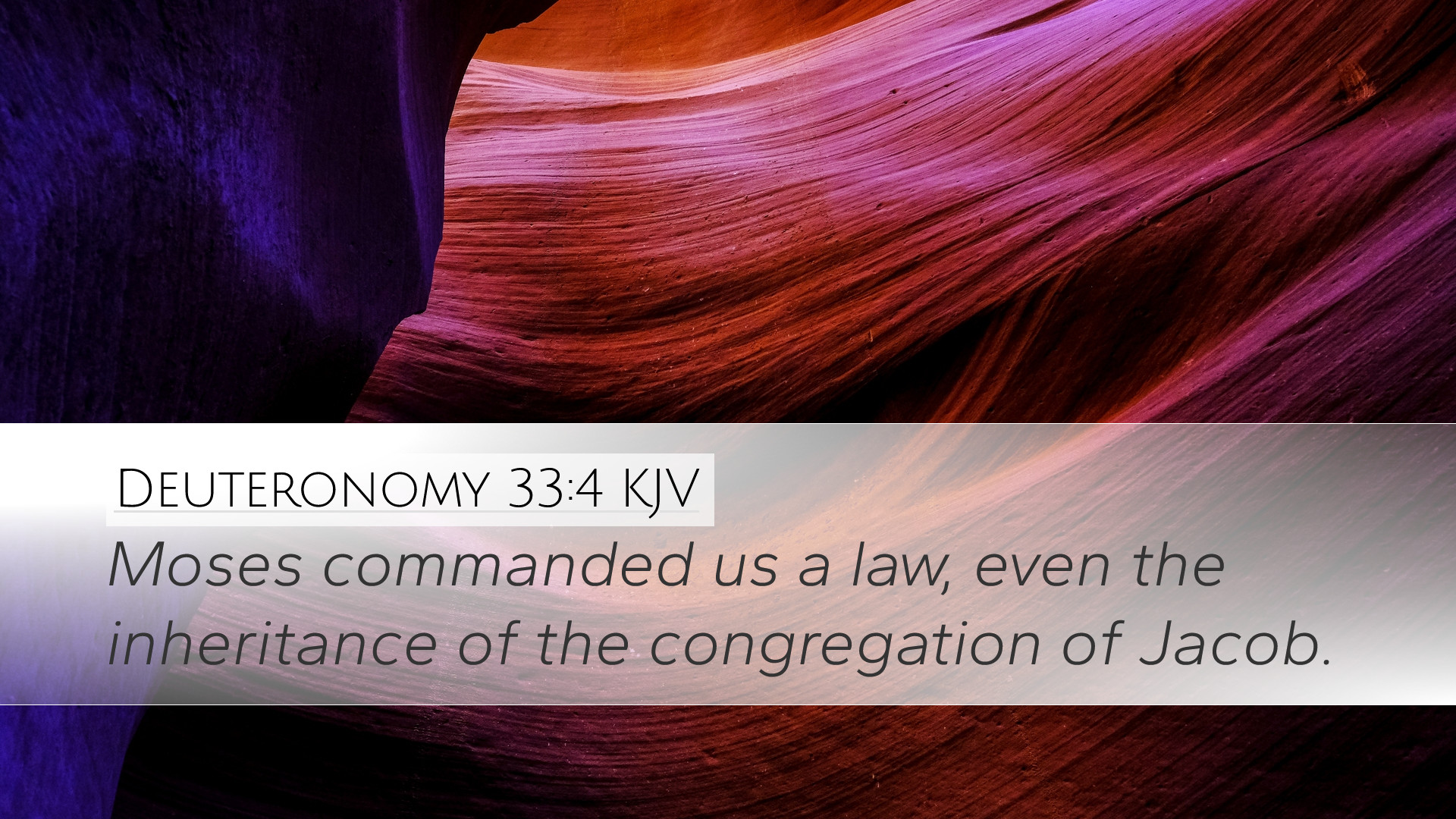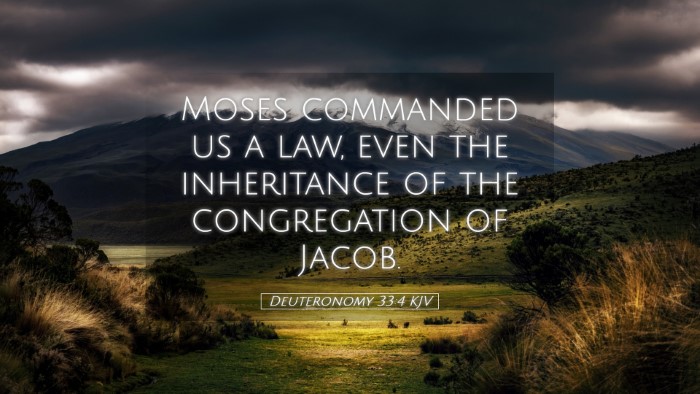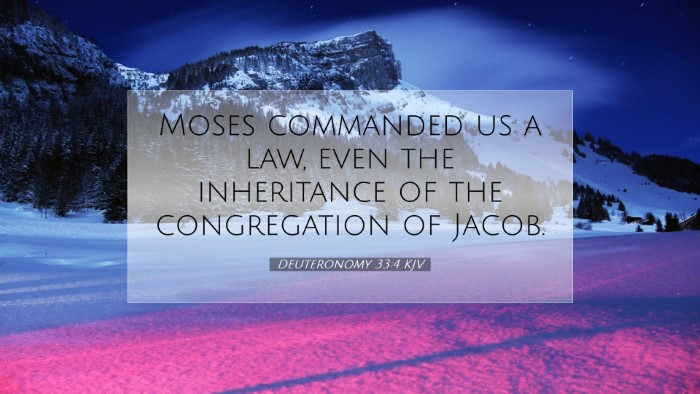Commentary on Deuteronomy 33:4
Bible Verse: "Moses commanded us a law, even the inheritance of the congregation of Jacob."
Introduction
This verse appears within the context of Moses' final blessings to the tribes of Israel before his death. It emphasizes the significance of the Law and its role in shaping the identity and community of God’s chosen people. The verse encapsulates Moses' legacy as a lawgiver and highlights the transition of leadership to Joshua and the new generation of Israelites.
Theological Insights
1. The Role of Moses
Moses is revered as a prophet and mediator between God and Israel. His commandment of the Law is foundational, representing more than just rules; it signifies a covenant relationship between God and His people. According to Matthew Henry, Moses’ role in delivering the Law underscores the importance of divine instruction in guiding human conduct.
2. The Inheritance of the Congregation
The designation of the Law as the "inheritance of the congregation of Jacob" calls attention to the communal aspect of the covenant. Albert Barnes notes that "inheritance" emphasizes the idea of a gift from God that provides identity and continuity. The Law is not merely a set of rules; it is part of a larger narrative—a divine promise realized in the communal life of Israel.
Historical Context
This verse serves as a reminder of the historical circumstances under which the Israelites received the Law. After their exodus from Egypt and years of wandering, they were on the verge of entering the Promised Land. Adam Clarke remarks on the significance of this moment; it reflects a pivotal transition where the identity, governance, and spiritual life of Israel were founded upon adherence to God's revealed Law.
Exegesis of Key Phrases
-
"Moses commanded us a law"
This phrase emphasizes the authoritative role of Moses in imparting divine instruction. The command entails obedience, suggesting that the Law demands a response from the people.
-
"the inheritance of the congregation"
The term "congregation" (or "assembly") illustrates the collective nature of Israel. This reinforces the idea that the Law serves all members, promoting unity in worship and obedience.
-
"of Jacob"
Referencing Jacob connects the current generation to their ancestral patriarch. According to Matthew Henry, this connection fosters a sense of belonging and continuity in God’s plan.
Applications for Today
The lessons of Deuteronomy 33:4 extend far beyond the ancient Israelites. For today’s readership, including pastors, students, and scholars, several applications emerge:
-
Understanding the Importance of Scripture
Just as the Israelites were given the Law as a guide, contemporary Christians are called to engage deeply with Scripture, viewing it as a living inheritance that shapes their community and individual lives.
-
The Collective Responsibility
There is a communal aspect to faith that is emphasized through the term "congregation." Modern congregations are encouraged to understand their role in upholding the teachings of Christ through mutual support and shared responsibility.
-
Grasping the Legacy of Faith
The invocation of Jacob highlights the generational aspect of faith. Each generation receives and interprets the Law, illustrating the need for teaching and mentorship within the church community.
Conclusion
Deuteronomy 33:4 offers a concise yet profound insight into the relationship between God, His law, and His people. Emphasizing the importance of obedience, community, and legacy, this verse challenges us to reflect on how we uphold and live out our own "inheritance." As we study this text with the wisdom of past scholars, may we also seek to embody its teachings in our present context.


